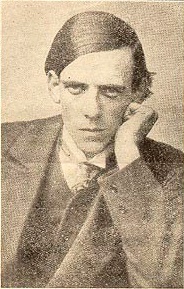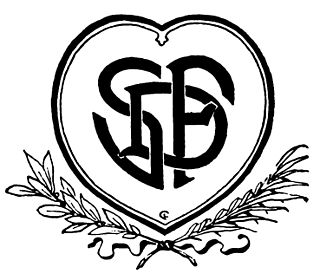Related Research Articles

The Independent Labour Party (ILP) was a British political party of the left, established in 1893, when the Liberals appeared reluctant to endorse working-class candidates, representing the interests of the majority. A sitting independent MP and prominent union organiser, Keir Hardie, became its first chairman.

James Maxton was a British left-wing politician, and leader of the Independent Labour Party. He was a pacifist who opposed both world wars. A prominent proponent of Home Rule for Scotland, he is remembered as one of the leading figures of the Red Clydeside era. He broke with Ramsay MacDonald and the second minority Labour government, and became one of its most bitter critics. As the leader of the Independent Labour Party (ILP), he disaffiliated the ILP from the mainstream party in 1932. Afterwards, he became an independent dissident outside front-line politics.

David Kirkwood, 1st Baron Kirkwood, PC, was a Scottish politician, trade unionist and socialist activist from the East End of Glasgow, who was as a leading figure of the Red Clydeside era.
There have been various groups in Canada that have nominated candidates under the label Labour Party or Independent Labour Party or other variations from the 1870s until the 1960s. These were usually local or provincial groups using the Labour Party or Independent Labour Party name, backed by local labour councils or individual trade unions. There was an attempt to create a national Canadian Labour Party in the late 1910s and in the 1920s, but these were only partly successful.

The Communist Party of Norway is a Marxist–Leninist communist party in Norway.
The Communist League was one of the first Trotskyist groups in Britain, formed in 1932 by members of the Communist Party of Great Britain in Balham and Tooting in South London, including Harry Wicks, who had been expelled after forming a loose grouping inside the CPGB, known as the Balham Group. This became the British Section of the International Left Opposition and adopted the name Communist League in June 1933. They published a monthly newspaper, Red Flag, and a quarterly journal, The Communist.

Evelyn John St Loe Strachey was a British Labour politician and writer.

Shapurji Dorabji Saklatvala was a communist activist and British politician of Indian Parsi heritage. Saklatvala is notable for being the first person of Indian heritage to become a British Member of Parliament (MP) for the UK Labour Party, and was also among the few members of the Communist Party of Great Britain (CPGB) to serve as an MP.
The Marxist Group was an early Trotskyist group in the United Kingdom.

The Glasgow Camlachie by-election was held on Wednesday 28 January 1948, following the death of the sitting Member of Parliament, Campbell Stephen.
Charles Andrew Smith MM known as C. A. Smith, was an English politician who held prominent positions in several minor parties.
The Socialist League was an organisation inside the British Labour Party, which sought to push it to the left. It was formed in 1932, through a merger between the National ILP Affiliation Committee (NILP) and the Society for Socialist Inquiry and Propaganda (SSIP), and ceased to exist in 1937.

The Labour and Socialist International was an international organization of socialist and labour parties, active between 1923 and 1940. The group was established through a merger of the rival Vienna International and the former Second International, based in London, and was the forerunner of the present-day Socialist International.

The British Socialist Party (BSP) was a Marxist political organisation established in Great Britain in 1911. Following a protracted period of factional struggle, in 1916 the party's anti-war forces gained decisive control of the party and saw the defection of its pro-war right wing. After the victory of the Bolshevik Revolution in Russia at the end of 1917 and the termination of the First World War the following year, the BSP emerged as an explicitly revolutionary socialist organisation. It negotiated with other radical groups in an effort to establish a unified communist organisation, an effort which culminated in August 1920 with the establishment of the Communist Party of Great Britain. The youth organisation the Young Socialist League was affiliated with the party.

The Communist Party of Great Britain (CPGB) was the largest communist party in Great Britain from 1920 to 1991. Founded in 1920 through a merger of several smaller Marxist parties, the CPGB gained the support of many socialist organisations and trade unions following the political fallout of the First World War and the Russian October Revolution. Ideologically the CPGB was a socialist party organised upon Marxism–Leninist ideology, strongly opposed to British colonialism, sexual discrimination, and racial segregation. These beliefs led many leading anti-colonial revolutionaries, feminists, and anti-fascist figures, to become closely associated with the party. Many prominent CPGB members became leaders of Britain's trade union movements, including Jessie Eden, Abraham Lazarus, Ken Gill, Clem Beckett, GCT Giles, Mike Hicks, and Thora Silverthorne.

Poale Zion was a movement of Marxist–Zionist Jewish workers founded in various cities of Poland, Europe and the Russian Empire in about the turn of the 20th century after the Bund rejected Zionism in 1901.

The Social Democratic Federation (SDF) was established as Britain's first organised socialist political party by H. M. Hyndman, and had its first meeting on 7 June 1881. Those joining the SDF included William Morris, George Lansbury, James Connolly and Eleanor Marx. However, Friedrich Engels, Karl Marx's long-term collaborator, refused to support Hyndman's venture. Many of its early leading members had previously been active in the Manhood Suffrage League.
The Scottish Socialist Party (SSP) was an organisation of former Independent Labour Party members who wished to remain part of the Labour Party after their former party disaffiliated.
Forward was a socialist newspaper published in Scotland from 1906.

Far-left politics in the United Kingdom have existed since at least the 1840s, with the formation of various organisations following ideologies such as Marxism, revolutionary socialism, communism, anarchism and syndicalism.
References
- ↑ Kowalski, Werner. Geschichte der sozialistischen arbeiter-internationale: 1923 - 19 . Berlin: Dt. Verl. d. Wissenschaften, 1985. p. 301
- ↑ Schildt, Axel, and Detlef Siegfried. European Cities, Youth and the Public Sphere in the Twentieth Century . Historical urban studies. Aldershot, Hampshire, England: Ashgate, 2005. p. 31
- ↑ Jones, Stephen G. Sport, Politics, and the Working Class: Organised Labour and Sport in Inter-War Britain . International studies in the history of sport. Manchester: Manchester University Press, 1988. p. 77
- ↑ Jupp, James. The Radical Left in Britain, 1931-1941 . London: Cass, 1982. p. 28
- ↑ Jupp, James. The Radical Left in Britain, 1931-1941 . London: Cass, 1982. p. 217
- ↑ Cole, G. D. H. A History of the Labour Party from 1914 . New York: Augustus M. Kelley, 1969. p. 175
- ↑ Tamiment Library Uncataloged Serials - Sorted by Place of Publication
- 1 2 Jupp, James. The Radical Left in Britain, 1931-1941 . London: Cass, 1982. p. 52
- ↑ Jupp, James. The Radical Left in Britain, 1931-1941 . London: Cass, 1982. p. 101